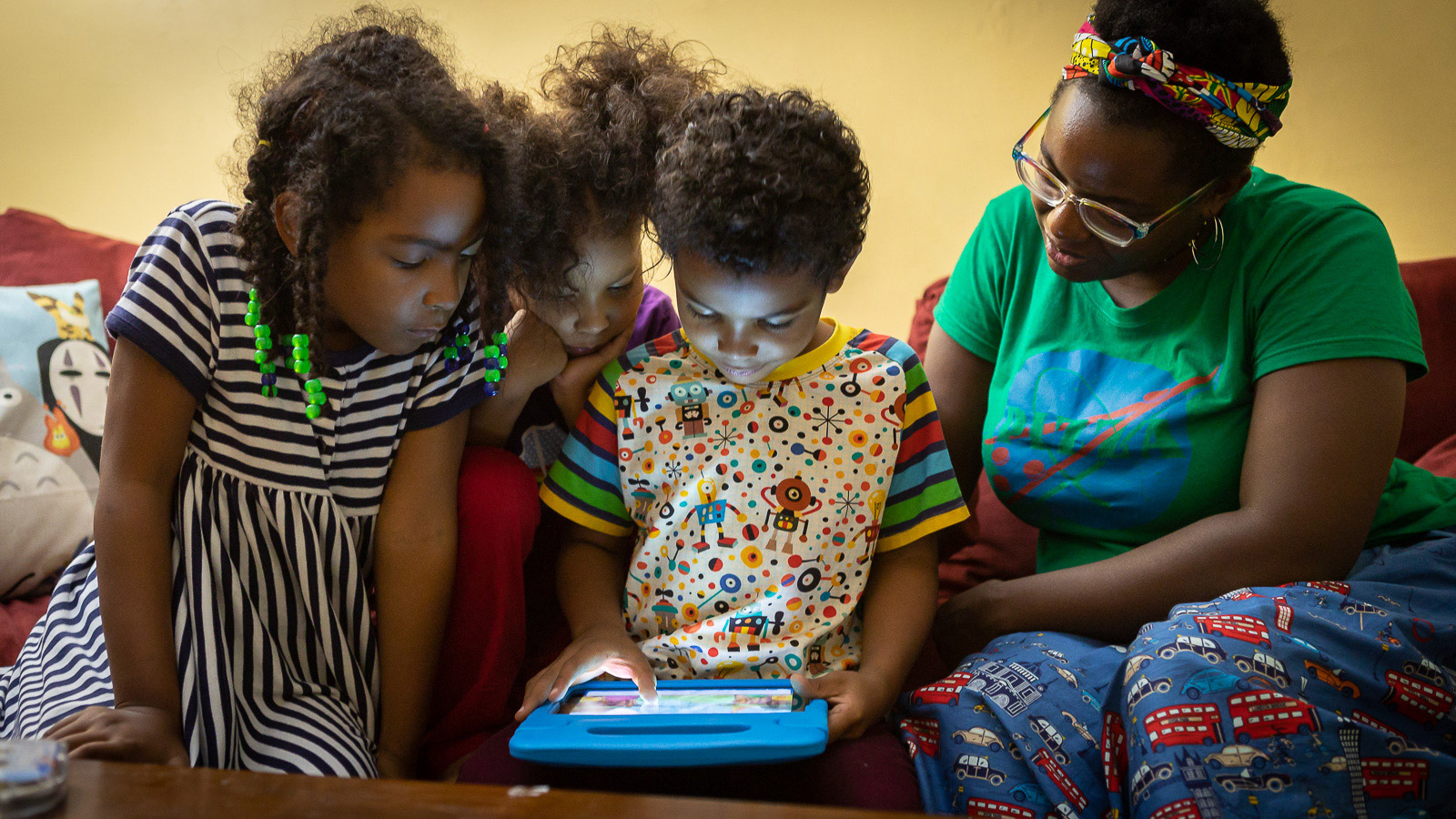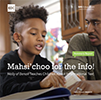Recent Research

We know that strong early learning experiences are critical for children’s well-being in school and throughout life, yet millions have limited or no access to quality early learning opportunities. In 1995, the U.S. Department of Education began funding the Ready To Learn Initiative (RTL), targeting preschool- and elementary-aged children. The goal was to promote school readiness through development and dissemination of high-quality children’s media targeting learning goals in early literacy, math, and science.
Since 2006, EDC’s Center for Children & Technology has worked in partnership with the Corporation for Public Broadcasting and PBS, conducting research and evaluation studies to determine whether Ready To Learn’s public media resources are meeting their goals and how they can be improved to reach and serve all children.
Recent Publications
Listen to This! Children's Podcasts, Family Engagement, and Opportunities for Learning
This report describes a study of the potential educational benefits of children's podcasts, including the features that drive and sustain children's and families' engagement and opportunities for learning, for children 4-8 years old.
The Efficacy of Digital Media Resources in Improving Children's Ability to Use Informational Text: An Evaluation of "Molly of Denali" from PBS KIDS
This article from the American Educational Research Journal reports findings of two 9-week randomized controlled trials with 263 first-grade children to examine whether free educational videos and digital games supported children's ability to use informational text to answer real-world questions.
Mahsi'choo for the Info! Summary Report
In this report, EDC and SRI present research into the impact of resources from the PBS KIDS series Molly of Denali on children's ability to use informational text to answer real-world questions.
Strategies for Success in Community Partnerships: Case Studies of Community Collaboratives for Early Learning and Media—Executive Summary and Cross-Case Report
Research partners EDC and SRI International completed six case studies as part of their evaluation of the implementation and impacts of a national network of 30 Community Collaboratives for Early Learning and Media (CC-ELM)—local partnerships among public media stations and organizations such as schools, libraries, afterschool program providers, parent and family advocacy groups, and housing authorities. This report opens with a cross-case analysis that places case study findings in the context of overall evaluation findings; the six case study reports follow, each focused on a single community.
Strategies for Success in Community Partnerships: Case Studies of Community Collaboratives for Early Learning and Media—Executive Summary
This is the executive summary of a case study report for people interested in funding, managing, forming, or improving community partnerships. It provides an in-depth account of strategies associated with success in Community Collaboratives for Early Learning and Media, or CC-ELM. A national network of 30 CC-ELM—local partnerships among public media stations and organizations such as schools, libraries, afterschool program providers, parent and family advocacy groups, and housing authorities—were developed and implemented between 2015 and 2020.
Early Science & Engineering: The Impact of "The Cat in the Hat Knows a Lot About That!" on Learning
This study's goal was to understand the extent to which providing access to media resources focused on critical science and engineering concepts can help children learn. The resources examined were from the PBS KIDS multi-platform property The Cat in the Hat Knows a Lot About That! Researchers found that exposure to these resources had meaningful impacts on 4- to 5-year-old children's physical science knowledge and their ability to engage with science and engineering practices.
PBS KIDS Play & Learn Science Evaluation Report
The PBS KIDS Play & Learn Science app was developed as part of the Corporation for Public Broadcasting (CPB) and Public Broadcasting Service (PBS) Ready To Learn Initiative, funded by the U.S. Department of Education. This study explored the impact of the PBS KIDS Play & Learn Science app—when used in a supportive context—on children’s understanding of science concepts and their use of science and engineering practices; children’s use of science vocabulary; child and parent-child engagement in science and engineering; and parent confidence supporting their child's science learning.
What Parents Talk About When They Talk About Learning: A National Survey About Young Children and Science
This report presents the results of a first-of-its-kind national survey of parents, who were asked about the types of early science educational activities they do with their young children. It also includes a follow-up qualitative study that sought to illuminate parents’ survey responses. The purpose of the study was to provide new insights on the ways in which parents help their young children learn, as well as new information on parents’ beliefs and practices related to early science learning and the use of learning media.
Getting Ready to Learn: Creating Effective, Educational Children's Media
Getting Ready to Learn (Routledge, 2018) describes how educational media have played and are continuing to play a role in meeting the learning needs of children, parents, and teachers. Based on years of research data from the CPB-PBS Ready To Learn Initiative, the book’s chapters cover the production, scholarly research, and technological advances surrounding public media and digital resources.








